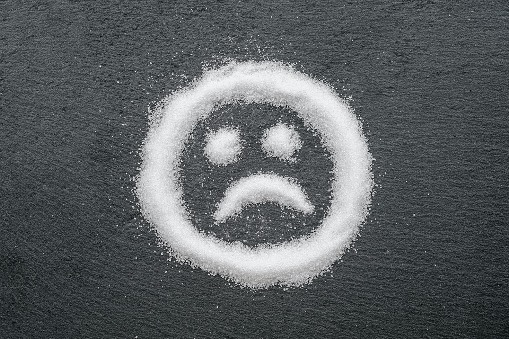OVERVIEW - CONSTIPATION
Constipation is when you have trouble pooping regularly. It means you might not go to the bathroom as often as usual, and when you do, it can be hard or uncomfortable. This happens for different reasons, like not eating enough fiber, not drinking enough water, or not moving around enough. Sometimes, certain medications or health conditions can also make constipation more likely. When you’re constipated, you might feel bloated or like you didn’t finish going to the bathroom. It’s common, and most people deal with it at some point.
SYMPTOMS OF CONSTIPATION
Constipation can be recognized by certain signs. Here are some common indications that you might be experiencing constipation:
Infrequent bowel movements: Not going to the bathroom as often as usual.
Hard or dry stools: Poop that is harder or drier than usual, making it difficult and uncomfortable to pass.
Straining during bowel movements: Feeling the need to push or strain a lot when trying to go to the bathroom.
Feeling of incomplete evacuation: Sensation that you haven’t completely emptied your bowels after using the bathroom.
Abdominal discomfort or bloating: A feeling of fullness or discomfort in your stomach, possibly accompanied by bloating.
Discomfort or pain: Some people may experience abdominal pain or discomfort associated with constipation.
CAUSES OF CONSTIPATION
While occasional constipation is generally considered normal, chronic or severe cases may lead to discomfort and impact one’s overall well-being. Several factors can contribute to constipation, including:
Dietary Factors: Insufficient fiber intake, low fluid consumption, and a diet high in processed foods can contribute to constipation. Fiber helps bulk up stool and facilitates its movement through the digestive tract.
Lifestyle Habits: Lack of physical activity can slow down bowel movements, as regular exercise stimulates the muscles in the intestines. Ignoring the urge to have a bowel movement may also lead to constipation.
Medications: Certain medications, such as opioids, some antacids, and certain antidepressants, can cause constipation as a side effect.
Medical Conditions: Various medical conditions, such as irritable bowel syndrome (IBS), hypothyroidism, and neurological disorders, can contribute to chronic constipation.
Age and Gender: Constipation tends to be more common in older adults and is generally more prevalent in women.
Common symptoms of constipation include:
- Straining during bowel movements
- Hard or lumpy stools
- Feeling of incomplete evacuation
- Abdominal discomfort or bloating
- Infrequent bowel movements
PREVENTION OF CONSTIPATION
Preventing constipation involves adopting certain lifestyle habits and dietary choices. Here are some tips to help prevent constipation:
Increase Fiber Intake: Eat a diet rich in fiber, including fruits, vegetables, whole grains, and legumes. Fiber adds bulk to stool and helps it move through the digestive system more easily.
Stay Hydrated: Drink plenty of water throughout the day. Water helps soften stool and promotes smooth bowel movements.
Regular Physical Activity: Engage in regular exercise to stimulate the muscles in your intestines, promoting bowel regularity. Even a brisk walk or other forms of moderate physical activity can be beneficial.
Establish Regular Toilet Habits: Develop a consistent schedule for bowel movements. Pay attention to your body’s signals and try to respond when you feel the urge to have a bowel movement.
Avoid Ignoring the Urge: When you feel the need to go to the bathroom, don’t delay. Ignoring the urge can lead to stool hardening in the colon, making it more difficult to pass.
Limit Processed Foods: Reduce the intake of processed and low-fiber foods, as they can contribute to constipation. Opt for whole, natural foods instead.
Limit Caffeine and Alcohol: Both caffeine and alcohol can contribute to dehydration, which may worsen constipation. Moderation is key.
Consider Probiotics: Probiotics, found in certain yogurts and supplements, can help maintain a healthy balance of bacteria in the gut, potentially aiding digestion.
Manage Stress: Chronic stress can affect digestion. Find stress-reducing activities such as meditation, deep breathing, or yoga.
Review Medications: If you’re taking medications that may contribute to constipation, discuss potential alternatives or solutions with your healthcare provider.
Everyone’s body is different, and what works for one person may not work for another. If constipation persists or becomes a recurring issue, it’s essential to consult with a healthcare professional, like our Doctors, for a personalized assessment and guidance. We can help identify underlying causes and recommend appropriate interventions to manage and prevent constipation effectively.
DIAGNOSIS FOR CONSTIPATION
Diagnosing constipation typically involves a healthcare provider considering your medical history, conducting a physical examination, and sometimes ordering specific tests. Here are common aspects of the diagnosis for constipation:
Medical History: Your healthcare provider will ask about your symptoms, including the frequency and consistency of bowel movements, any associated pain or discomfort, and how long you’ve been experiencing constipation. They may also inquire about your diet, lifestyle, medications, and any underlying health conditions.
Physical Examination: A physical examination may involve checking for abdominal tenderness or masses, assessing the rectum for any abnormalities, and evaluating overall health.
Diet and Lifestyle Assessment: Your healthcare provider may inquire about your diet, fluid intake, and physical activity to identify potential contributing factors to constipation.
Medication Review: A review of your current medications may be conducted to determine if any medications could be contributing to constipation.
Diagnostic Tests: In some cases, diagnostic tests may be ordered to rule out underlying conditions or provide more information about the digestive system. These tests may include:
- Blood tests: to check for systemic conditions such as hypothyroidism.
- Colonoscopy or sigmoidoscopy: to examine the colon for abnormalities or blockages.
- Imaging studies: such as abdominal X-rays or pelvic floor function tests.
- Bowel Diary: Keeping a record of your bowel habits, including frequency, consistency, and any associated symptoms, may help your healthcare provider understand your condition better.
Evaluation for Other Conditions: Constipation can sometimes be a symptom of other underlying conditions such as irritable bowel syndrome (IBS), inflammatory bowel disease (IBD), or neurological disorders. If your healthcare provider suspects an underlying condition, further evaluation may be recommended.
ALLOPATHY APPROACH IN TREATING CONSTIPATION
The allopathic approach in treating constipation typically involves a combination of lifestyle modifications, dietary changes, and, if necessary, medications. Here’s an overview of the allopathic approach to managing constipation:
Dietary Recommendations:
Increased Fiber Intake: Allopathic doctors often recommend a diet high in fiber, including fruits, vegetables, whole grains, and legumes. Fiber adds bulk to stool and promotes regular bowel movements.
Adequate Hydration: Ensuring sufficient fluid intake is crucial to prevent stool from becoming hard and difficult to pass.
Lifestyle Modifications:
Regular Exercise: Physical activity helps stimulate bowel movements and promotes overall digestive health. Even moderate exercise, such as walking, can be beneficial.
Habits: Encouraging patients to respond promptly to the urge to have a bowel movement helps prevent stool from becoming excessively dry and hard.
Over-the-Counter (OTC) Medications:
Fiber Supplements: If dietary changes are insufficient, doctors may recommend over-the-counter fiber supplements like psyllium or methylcellulose to increase bulk in the stool.
Laxatives: In some cases, short-term use of over-the-counter laxatives may be recommended to relieve constipation. However, prolonged or frequent use of laxatives is typically discouraged without medical supervision.
Prescription Medications:
Prescription Laxatives: For individuals with chronic constipation or when over-the-counter options are ineffective, doctors may prescribe stronger laxatives such as polyethylene glycol, lubiprostone, or linaclotide.
Medications for Specific Conditions: If constipation is associated with specific medical conditions, such as irritable bowel syndrome (IBS) or neurological disorders, doctors may prescribe medications targeted at managing those underlying conditions.
Biofeedback Therapy:
Pelvic Floor Rehabilitation: For individuals with constipation related to pelvic floor dysfunction, biofeedback therapy may be recommended. This involves exercises to improve coordination and strength in the pelvic floor muscles.
Surgery (in extreme cases):
For Severe Cases: In extremely rare cases where other treatments have failed and constipation is severe, surgery may be considered. However, surgical interventions are typically reserved for specific cases, such as when there’s a structural problem causing the constipation.
AYURVEDA APPROACH IN TREATING CONSTIPATION
Ayurveda’s approach to treating constipation involves a holistic perspective that considers an individual’s unique constitution, or “dosha,” along with lifestyle, diet, and herbal remedies. Here is an overview of the Ayurvedic approach to managing constipation:
Dietary Recommendations:
Increase Fiber Intake: Ayurveda emphasizes the importance of a diet rich in fiber, including fruits, vegetables, whole grains, and legumes. This helps in softening the stool and promoting regular bowel movements.
Herbal Teas: Drinking herbal teas, such as licorice or ginger tea, can help stimulate digestion and alleviate constipation.
Lifestyle Modifications:
Regular Exercise: Engaging in regular physical activity, particularly exercises that involve the abdominal region, is encouraged to support digestion and bowel regularity.
Establishing Routine: Following a regular daily routine, including a consistent time for meals and bowel movements, can help regulate the digestive system.
Hydration:
Warm Water: Ayurveda recommends drinking warm water throughout the day, especially in the morning, to promote digestion and ease bowel movements.
Herbal Remedies:
Triphala: A popular Ayurvedic herbal formulation called Triphala, composed of three fruits (amalaki, bibhitaki, and haritaki), is often recommended for promoting digestive health and relieving constipation.
Psyllium Husk (Isabgol): This natural fiber supplement is known for its mild laxative effects and is used in Ayurveda to alleviate constipation.
Yoga and Meditation: Practices like yoga and meditation are integral to Ayurveda, promoting overall well-being and helping to reduce stress, which can contribute to digestive issues.
ROLE OF PANCHKARMA IN TREATING CONSTIPATION
Panchakarma is a comprehensive detoxification and rejuvenation therapy that plays a significant role in promoting overall health and addressing various health issues, including digestive disorders like constipation.
Panchakarma aims to balance the doshas (Vata, Pitta, and Kapha) and remove accumulated toxins from the body. Here’s how Panchakarma may contribute to treating constipation:
Detoxification:
Panchakarma involves a series of cleansing procedures to eliminate toxins (ama) from the body. These procedures help clear the digestive tract and improve its function.
Balancing Doshas:
Constipation is often associated with an imbalance in the Vata dosha. Panchakarma therapies are designed to balance Vata and other doshas, promoting harmony within the body.
Abhyanga (Oil Massage):
Abhyanga, a part of the Panchakarma process, involves therapeutic oil massages. The massage helps stimulate the digestive system, enhances blood circulation, and supports the elimination of waste.
Swedana (Steam Therapy):
Swedana is a heat therapy that helps relax the muscles, improve blood flow, and promote the elimination of toxins through sweating. It can be beneficial for individuals with constipation.
Basti (Enema Therapy):
Basti is a crucial component of Panchakarma, involving the administration of herbal oils or decoctions through the rectum. This therapy is particularly effective in addressing Vata-related issues, such as constipation, by lubricating the intestines and promoting bowel movements.
Nasya (Nasal Administration):
Nasya involves the administration of herbal oils or powders through the nasal passages. It helps clear congestion in the head and neck region, which can indirectly influence digestive functions.
Stress Reduction:
Panchakarma includes practices like meditation and yoga, which contribute to stress reduction. Stress can impact digestion, and addressing it may indirectly help alleviate constipation.
TREATMENT AT DR MONGA MEDI CLINIC
Patients suffering from constipation must consult with healthcare professionals trained in both Ayurveda and allopathy, like our Doctors, to ensure a safe and effective treatment plan.
At Dr Monga Medi Clinic we have been effectively treating patients suffering from Constipation. We combine Ayurvedic principles with evidence-based allopathic treatments so that individuals can experience a more comprehensive and personalized approach to managing constipation. Our integrated strategy considers the strengths of both systems, addressing the root causes of constipation while providing symptomatic relief.
FREQUENTLY ASKED QUESTIONS
Consult a healthcare professional if constipation persists for an extended period, is accompanied by severe pain, bleeding, weight loss, or if there’s a sudden change in bowel habits.
OTC medications, such as fiber supplements and mild laxatives, can be effective for short-term relief. However, prolonged use should be done under medical supervision.
In some cases, yes. Chronic constipation may be a symptom of underlying conditions like irritable bowel syndrome (IBS), hypothyroidism, or colorectal issues. It’s important to consult a healthcare professional for proper evaluation.
INFORMATIVE ARTICLES ON GASTRO PROBLEMS

Ayurvedic Tips to reduce Acid Reflux and Indigestion
That small bowl of ‘Halwa’ is awfully enticing, but there is something that holds you back, especially when you are a diabetic. Yes! that something

Ayurveda has solution for Piles (Bawasir)
For easy defecation our anal cavity has elastic tissue to help control the passing of excreta. This tissue needs a special kind of blood supply

Best Ayurveda Treatment for piles at Dr Monga Clinic
When there are Swollen and inflamed veins in our rectum and anus leading to discomfort and even bleeding, it indicates we have piles. If you











